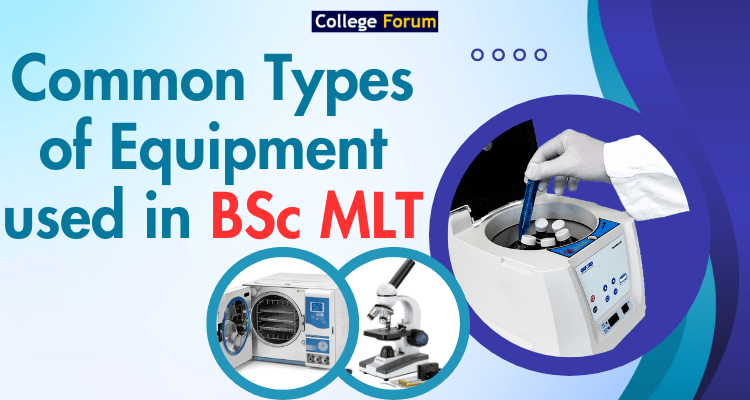A Bachelor of Science in Medical Laboratory Technology (B.Sc. MLT) program typically involves the use of various laboratory equipment for diagnostic and analytical purposes. The specific equipment may vary depending on the curriculum of the program and the focus of the laboratory work. However, here are some common types of equipment used in B.Sc. MLT programs:
- Microscopes:
- Compound microscopes for examining cells and microorganisms.
- Fluorescence microscopes for specialized staining techniques.
- Centrifuges:
- Used to separate blood components or other substances based on density.
- Automated Analyzers:
- Hematology analyzers for complete blood count (CBC).
- Chemistry analyzers for blood chemistry tests.
- Immunology analyzers for detecting antibodies and antigens.
- Incubators:
- Used for growing and maintaining cultures of microorganisms.
- Autoclaves:
- Sterilization equipment for ensuring that laboratory instruments and media are free from contaminants.
- PCR Machines:
- Polymerase Chain Reaction machines for amplifying and analyzing DNA.
- Electrophoresis Equipment:
- Gel electrophoresis apparatus for separating DNA, RNA, or proteins based on size and charge.
- Spectrophotometers:
- Used to measure the absorption of light, helpful in analyzing concentrations of substances in a sample.
- Blood Banking Equipment:
- Blood typing and crossmatching machines for transfusion medicine.
- Urinalysis Equipment:
- Analyzers for examining urine samples for various parameters.
- Microtomes:
- Instruments for cutting thin sections of tissues for microscopic examination.
- Flow Cytometers:
- Used for analyzing the characteristics of cells, often in immunology and hematology studies.
- Cryostats:
- Equipment for cutting frozen tissue sections for pathological examinations.
- Phlebotomy Equipment:
- Tools for venipuncture and blood sample collection.
- Laboratory Information Systems (LIS):
- Software systems for managing and tracking laboratory data and results.







